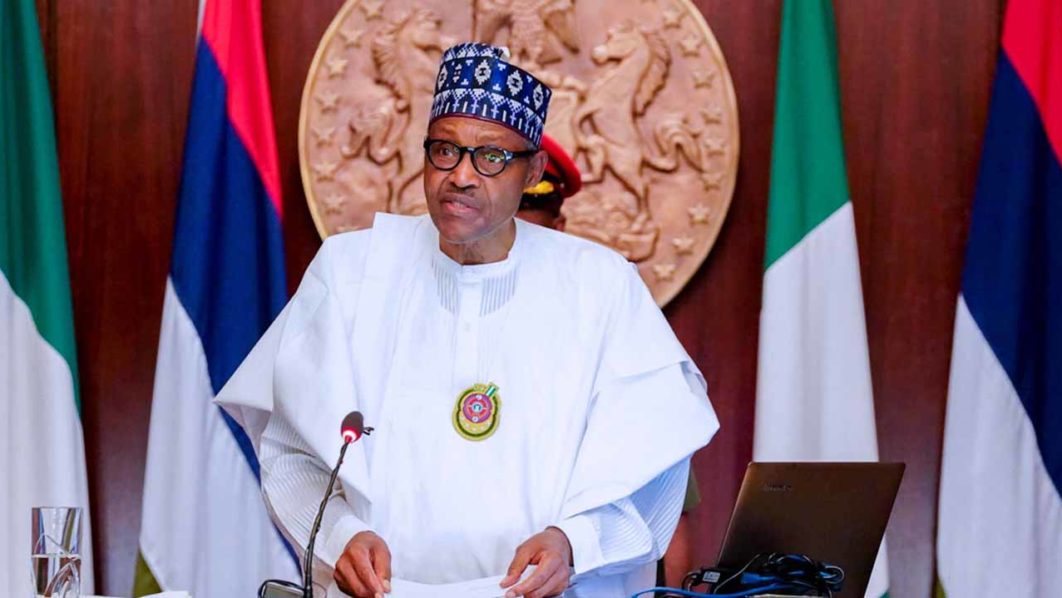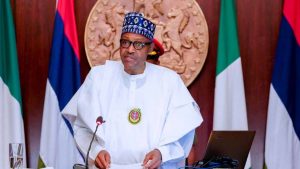China-Exim Bank has rejected Nigeria’s $22,798,446,773 loan request earlier approved by the National Assembly.
This has made the House of Representatives, to approve the request by the Federal Government to borrow $973,474,971.38 from China Development Bank after the rejection by China-Exim bank.
The Chairman of the House Committee on Rules and Business, Abubakar Fulata, moved a motion for the legislative chamber to amend its resolution granting approval for the failed loan deal.
The motion was titled ‘Rescission of the 2016–2018 Federal Government External Borrowing (Rolling) Plan.’
Moving the motion, Fulata said, “The House notes that the 2016–2018 Federal Government External Borrowing (Rolling) Plan was approved by the Senate and the House of Representatives on March 5, 2020, and June 2, 2020, respectively.
“The House recalls that the National Assembly approved the sum of $22,798,446,773 only under the 2016–2018 Medium Term External Borrowing (Rolling) plan. The House is aware of the communications from the Federal Ministry of Finance requesting approval of modifications to the financing proposal for the Nigerian Railway Modernisation Project (Kaduna–Kano segment) occasioned by the COVID–19 pandemic, whereof China Exim Bank withdrew its support to finance the project.”
He added, “The House is also aware that to secure funds for the project, the contractor (CCECC Nigeria Limited), in collaboration with the Federal Ministry of Transportation, engaged China Development Bank as the new financier in the sum of $973,474,971.38 only.”
Fulata, therefore, prayed the House to “rescind its decision on the financier and harmonised terms and approve the change of financier from China Exim Bank to China Development Bank.”
The lawmakers unanimously granted the prayer.
The House also approved the conditions provided in the harmonised term sheet: Segment – Kaduna–Zaria–Kano; financier – China Development Bank; type of loan – commercial loan; maturity – 15years; currency – euro; interest rate – 2.7% + 6 months Euribor; commitment fee – 0.4%; and upfront fee – 0.5%.
The Chairman of the House Committee on Treaties, Protocols and Agreements, Nicholas Ossai, who commented after Fulata moved the motion, stated that the Executive arm of the government failed to present details of Nigeria’s commercial agreements with other countries to the National Assembly.
Ossai added, “Secondly, we are now changing from China Exim Bank to China Development Bank, it then means an addition of another agreement. And if we are going to pass this resolution, it then means that members of this honourable House will not see those agreements.
“It is incumbent and important for the Minister of Finance (Budget and National Planning, Zainab Ahmed), when you are coming (to the National Assembly) on these issues to come with the agreements as agreed with the China Development Bank, so that members can be guided when approving such conditions for this loan. Mr Speaker, I believe that this motion should be stepped down while we ask the relevant authorities to forward all the agreements as agreed with China Development Bank.”
Ossai, however, insisted that it was an external loan with an international commercial agreement, which falls under the jurisdiction of his committee.
“I have also written to the Chairman (of the Committee on) Aids and Loans on this matter. I have also written to the Minister of Finance on this matter,” he stated.
While Gbajabiamila asked Chairmen of the Committees on Transport as well as Aids and Loans to see him immediately after the session, he went ahead to put the motion to voice vote and it was nanimously adopted.
The House has kept mum on the alleged abandonment of an investigation of commercial agreements and external borrowings by the Federal Government, which the Ossai-led committee carrying out the probe had said contained “dangerous” clauses.
The committee has yet to lay its report on the botched probe which began in 2020.
Meanwhile, the Senate, also on Tuesday, approved the request to extend the implementation of the capital component of the 2022 Appropriation Act from March 31 to June 30, 2023.
The Executive had requested extension of the lifespan of the Federal Government budget from December 31 to March 31, which the National Assembly approved in December 2022.






